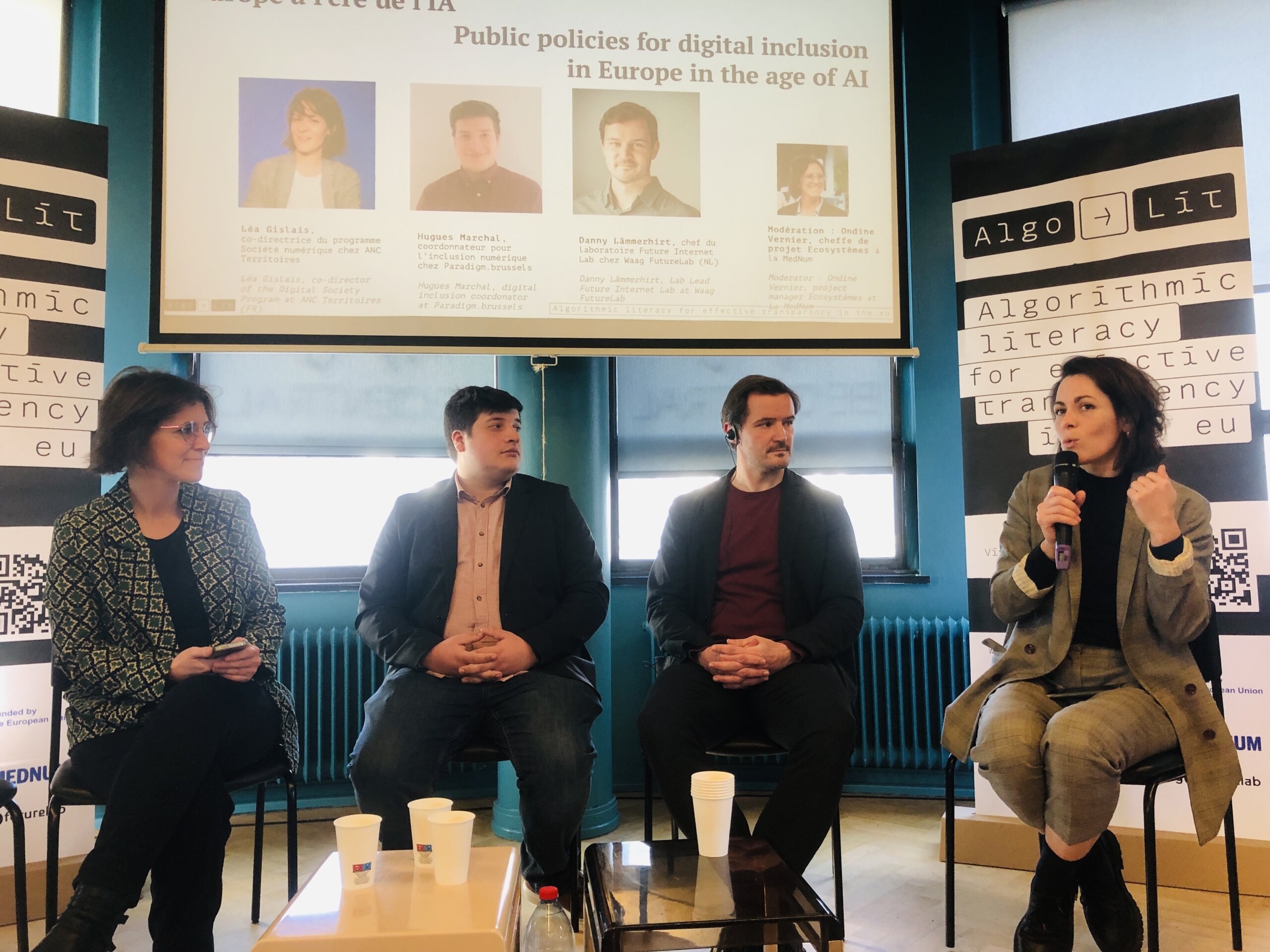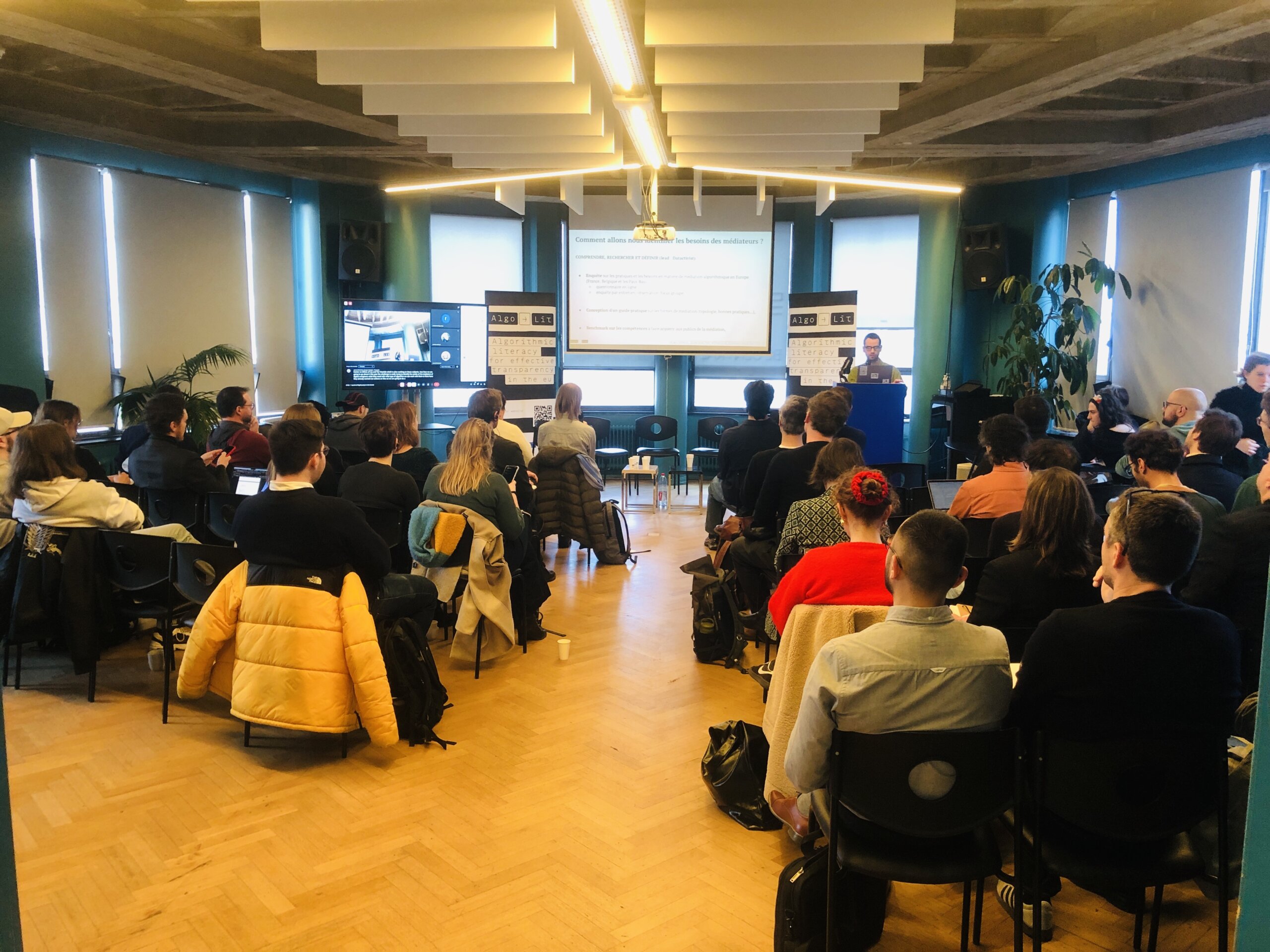FARI Joins EU ALGO-LIT Research Project to Advance Algorithmic Literacy
Author
Alice Demaret, Aydan Huseynova
A new European initiative is tackling one of today’s pressing digital challenges: helping citizens understand and navigate algorithm-driven systems.
On December 1, 2024, FARI – AI for the Common Good Institute (VUB & ULB) became a part of the ALGO-LIT (Algorithmic Literacy for Effective Transparency in the EU project, which will run until November 30, 2027. This Erasmus+ initiative involves four partners: Datactivist and La Mednum from France, Waag Futurelab from the Netherlands, and FARI – AI for the Common Good Institute from Belgium.
The project aims to enhance algorithmic literacy among digital inclusion workers (e.g., Espaces Publics Numériques (EPN), Openbare Computerruimte (OCR), libraries, CPAS) and rights advocates, to better support citizens in navigating algorithm-driven systems that influence access to public services and rights. The project empowers digital inclusion workers to engage with complex algorithms and help make their functions more understandable and actionable. This is done by mapping needs, sharing practices, and co-developing tools. Recognizing that true transparency goes beyond open code, it underlines mediation, communication, and community-building. Through workshops, co-creation initiatives, and collaborative exploration of real-world automated decisions, the project seeks to increase visibility of algorithmic impacts, build capacity, and foster a supportive community around digital inclusion and algorithmic accountability.
The Launch Event: Laying the Ground for Inclusive Algorithmic Transparency
The launch event, held on February 26, 2025, brought together digital inclusion workers , public administrations, European actors and researchers.
The event emphasized the urgent need for algorithmic transparency rooted not only in accessible code, but in mediation through communication, explanation, and the formation of communities of practice.
Algorithmic transparency, therefore, must be rooted in algorithmic literacy, co-developed with and for citizens. As algorithms increasingly shape access to public services, benefits, and rights, professionals need the skills and frameworks to interpret, explain, and challenge automated systems in meaningful ways.
This session was held in a hybrid format consisting of two roundtable discussions on the topics of AI & digital inclusion and digital inclusion public policy in the EU. Additionally, the first roundtable discussions involved testimonies of digital inclusion workers about their experiences conducting activities about AI/algorithms. Within these discussions, Florence Camus (EPN CyberRogier), Adrien Pouillot (MedNum), Djamel Dris (Ville d’Armentières), and Erwan Le Luron (Métropole de Lyon) were present.
Furthermore, the second roundtable brought together Léa Gislais (ANCT), Hugues Marchal (paradigm.brussels), Danny Lämmerhirt (Waag Futurelab) and Ondine Vernier (MedNum). The discussion focused on how public policies can support digital inclusion in the context of AI, pointing out the importance of mediation, training, and democratic dialogue around technology. Speakers discussed both the opportunities and challenges AI presents, including ethical concerns, political shifts, and the need for inclusive, transparent systems.
The keynotes of the sessions were Nicolas Chagny (Internet Society) and Nathanael Ackerman (AI4Belgium, BOSA).
© Images by Maëlle Fouquenet
Building Digital Inclusion with FARI
FARI plays a leading role in advancing algorithmic literacy by defining key mediation skills within the EU competency frameworks and developing a pilot teaching strategy. It also takes part in the coordination of co-creation workshops to shape an EU-wide algorithmic literacy framework. Additionally, FARI oversees the dissemination and assessment of training materials to ensure their effectiveness and accessibility to the specific needs of digital inclusion workers.
Together with its partners, FARI aims to anticipate and meet the growing demand for digital inclusion workers to help citizens navigate algorithm-driven decisions, such as completing tax forms, interacting with AI chatbots, and creating awareness.
Help Shape the Future of Algorithmic Literacy
Are you involved in digital inclusion efforts in Belgium, France, or the Netherlands—working in settings such as an Espace Public Numérique (EPN), Openbare Computerruimte (OCR), library, or CPAS?
The ALGO-LIT project is conducting a survey to better understand the needs, experiences, and insights of those supporting citizens in navigating algorithm-driven systems. Your input will directly inform the development of training, tools, and policy recommendations on algorithmic literacy across Europe.
We invite you to take part in this important initiative by completing our short 10-minute, multilingual survey (available in French and Dutch).
>> Access the survey here in French<<
>> Access the survey here in Dutch<<
Your voice matters. Join us in building a more transparent, inclusive, and informed digital society.
Contact
– Alice Demaret, FARI, AI Impact Advisor: alice.demaret@fari.brussels
– Loup Cellard, Datactivist, Scientific Director: algolit@datactivi.st
– Bente Zwankhuizen, Waag Futurelab, Project Manager: bente@waag.org
– Quitterie de Marignan, La Mednum, Project Manager: quitterie.demarignan@lamednum.coop
Share
Other news


